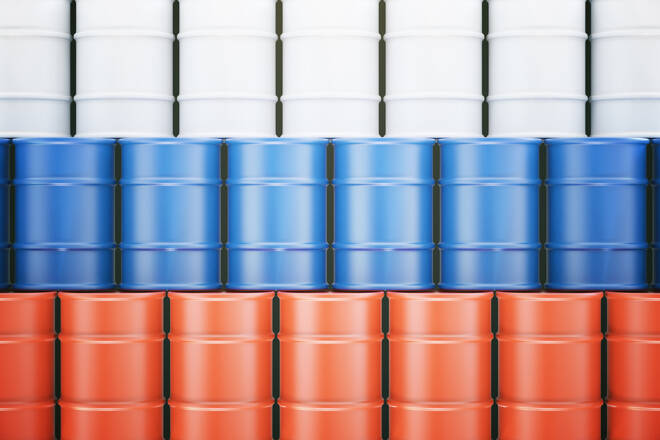Advertisement
Advertisement
Russia: Near-Term Economic Stabilisation Contrasts with Slow Reform Momentum, Climate Challenges
By:
Prudent macroeconomic policies have reinforced Russia’s resilience in face of external shocks, but a coherent plan is nonetheless needed to address longer-term structural challenges, including the carbon intensity of the economy.
A recently proposed carbon levy by the EU, Russia’s largest trading partner, could potentially have a sizeable impact on the government’s budget that relies heavily upon oil and gas exports.
Strengthened public finances and accumulation of foreign-exchange reserves have enabled the Russian economy to withstand imposition of international sanctions and the Covid-19 crisis thus far comparatively well.
Russia’s output levels already recovered close to those pre pandemic. GDP ought to grow 4-4.5% for the calendar year 2021, revised up from 3% under our June 2021 forecasts, before 2.7% growth next year.
Greater economic stability has been met, however, with sidestepping of addressing structural weaknesses
Greater economic stability nearer term has, however, coincided unfortunately with an overlooking of the economy’s longer-run structural weaknesses.
Real disposable income of households declined by nearly 10% between 2013-2020. Russia’s growth prospects over this next decade are weak, of 1.5-2% annually, despite already comparatively low income per capita.
Structural reforms aimed at addressing underinvestment will prove crucial to increasing longer-run growth prospects, while global climate policies make the focusing upon of environmental issues a high priority.
Implementation of national investment projects has been sluggish
The government’s implementation of USD 360bn of national investment projects has thus far been sluggish. As of 1 August, only half of planned annual budgetary allocations have been executed. Delays of implementation weigh on the long-run health of the economy.
Fiscal vulnerability to Western environmental legislation
The economy’s carbon intensity and government reliance on energy exports for revenue make budgeting vulnerable to Western environmental legislation. Russia is the world’s fourth-largest carbon emitter, accounting for approximately 4.7% of world CO2 emissions.
Russia’s exports to the EU will be materially affected by the proposed carbon levy, designed to accelerate an EU switch to a lower-carbon energy mix and which could contribute to less demand for fossil fuel products.
The potential cost of an EU levy is still small compared to the overall size of the Russian economy, at around half a percent of Russian annual GDP, but this cost could, nevertheless, increase should EU expand the levy to include oil and gas.
Russia will gradually integrate climate-related issues into economic policymaking, as new regulations come into force in key export markets. In response to the EU, we see Russia potentially combining legal challenges to the planned carbon levy with offers of environmental-policy cooperation with Brussels in order to avoid the full impact of EU policies on its exports.
Download Scope Ratings’ full research report
For a look at all of today’s economic events, check out our economic calendar.
Levon Kameryan is Senior Analyst in Sovereign and Public Sector ratings at Scope Ratings GmbH.
About the Author
Levon Kameryancontributor
Levon graduated with a M.Sc. in International Economics and Public Policy from the University of Mainz in 2016. Levon worked previously as an economist at the Central Bank of Armenia.
Advertisement
